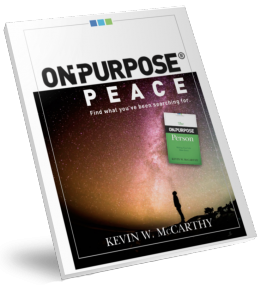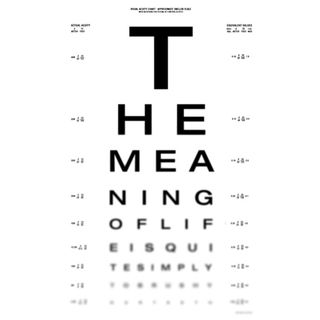
My post last week provoked a number of readers, particularly this observation: “Therefore, when it comes to casting your vote for president, look beyond the rhetorical barbs, attack ads, and commercial sound bites designed to appeal to our secular selves. Harris unabashedly leans into a culture of death. Trump awkwardly leans into a culture of life.”
Readers were particularly curious about the terms “culture of death” and “culture of life.” I borrowed these phrases from watching The 1916 Project documentary. Gain context by watching the film for free on the X social media platform. I highly recommend it.
What is a culture of death?
This is a societal moral state whereby human life is deemed to be expendable, meaningless, and without innate purpose. This phenomenon challenges traditional values regarding life and morality and is exercised through abortion, euthanasia, and certain ideologies linked to eugenics and materialistic views. Therefore, putting others to death essentially without due process is justifiable in the situational eyes of the beholder and carries no legal, ethical, or personal consequence. The Holocaust is the ultimate example of this notion carried to its logical conclusion.
The Project 1916 documentary traces our current culture of death as rooted in a 1700s population control philosophy. Like frogs in the proverbial kettle, this once creeping ideology is accelerating into acceptance as a present-day societal norm and practice. Therefore, the convenient removal of an inconvenient tissue mass with a heartbeat from within a woman’s womb is of no consequences to the mind, body, or spirit.
On February 3, 1994, at the National Prayer Breakfast, Mother Teresa addressed the societal and personal impact of abortion (13-minute mark): “But I feel that the greatest destroyer of peace today is abortion, because Jesus said, ‘If you receive a little child, you receive me.’ So, every abortion is the denial of receiving Jesus — is the neglect of receiving Jesus. It is really a war against the child, a direct killing of the innocent child, murder by the mother herself. And if we accept that a mother can kill even her own child, how can we tell other people not to kill one another?”
According to a report on National Public Radio, in 2023, the number of abortions performed in the US was 1,026,690 — that’s an average of 2,813 terminations of life per day. This represents an increase in abortions since the overturn of Roe v. Wade. The world was horrified on 9/11 as 2,996 souls died in the terrorist attacks, as seen on television. Ending an inconvenient pregnancy in the privacy of a healthcare clinic receives little outcry except perhaps for the one soul being legally executed as the final solution.
What is a culture of life?
This is a moral state where all life is celebrated as sacred, and each person has innate worth, meaning, and purpose, often in spite of our limited ability to see or understand it. These traditional value are rooted in the Sixth Commandment, “Thou shalt not kill.”
In 1776, the US Declaration of Independence put forth the following: “We hold these truths to be self-evident, that all men are created equal, that they are endowed by their Creator with certain unalienable Rights, that among these are Life, Liberty and the pursuit of Happiness.” The concept of Life as a right is codified in the US Constitution, including the presumption of innocence — all are innocent until proven guilty beyond a reasonable doubt. Therefore, an abortion like any death sentence demands thoughtful adjudication and rare use as an exception versus the rule.
Yet, like the aforementioned frogs being slowly boiled in a pot, our national and international norms continue a slide into a culture of death, i.e., abortion on demand without due process of the unborn — the most innocent of all and most worthy of our protection — is murderously wrong.
From carrying a baby to carrying guilt
If you are a woman who terminated a pregnancy or a man who pushed a woman for one and you are suffering because of your decision, you have a paradoxical choice. Just because you made a decision for a “culture of death” once doesn’t mean your soul is forever committed to it. You can make a tough shift switch toward a culture of life where healing and wholeness await you.
By definition, restoration is not possible in the culture of death. Philosophically, your abortion carries “no consequences.” “So what’s the problem? Move on with your life,” which was the point of the termination of the inconvenient pregnancy in the first place.
In contrast, only within a culture of life is your complex imprisonment of emotions compassionately recognized as carrying hauntingly adverse consequences. As a result of grace, forgiveness, and acceptance, your deep hurt can be redeemed and your wellbeing restored.
“Elections have consequences.”
In January 2009, shortly after winning the presidency, former President Barack Obama uttered these three words that have become a political truism. The 2024 election will have consequences.
Because of the two-party system, US elections are largely binary events: VP Harris or former President Trump. “Either-or” choices create stark contrasts in what can otherwise be a complex web of competing thoughts. Hopefully, this death or life contrast of cultures offers guidance if you’re feeling lost in the moral trees, having lost sight of the forest fire burning around us.
On-Purpose, for example, uses an “on” light switch as a reminder we are either off- or on-purpose — in the dark or in the light. It’s a subtle nod to another binary choice: Life is either meaningful or meaningless. Naturally, with on-purpose, I unreservedly advocate the “life is meaningful” choice. And I uphold your free speech right to respectfully disagree by voting your conscience.
Be On-Purpose!
Kevin

